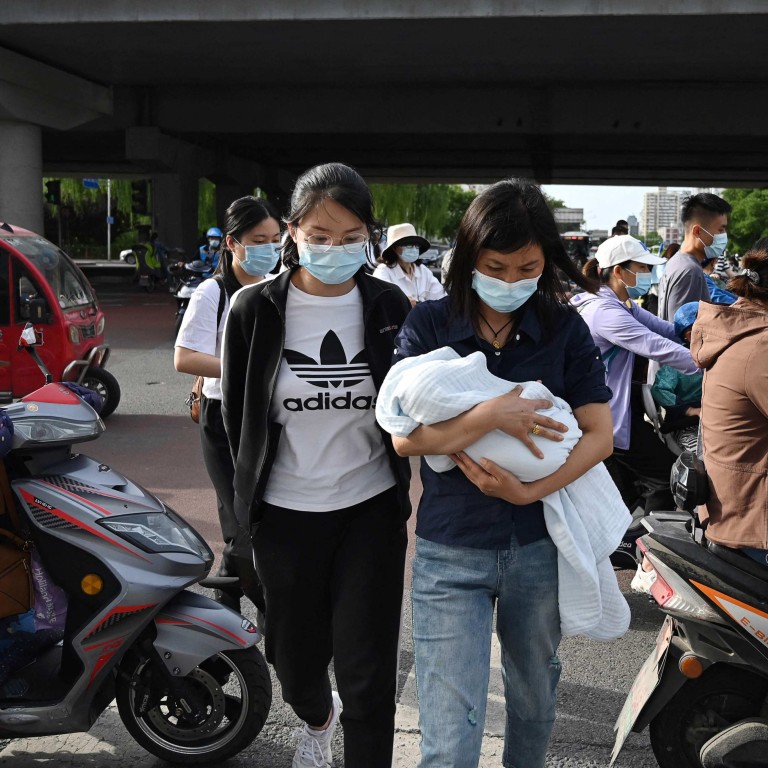
China population: infertility rate rising faster than expected, new reproductive study shows
- One out of every 5.6 couples of childbearing age in China is unable to make a baby despite frequently having unprotected sex for at least a year
- New findings come as world’s most populous country is scrambling to deal with a demographic crisis
The prevalence of infertility in China has increased at a faster-than-expected rate in the past decade, dealing yet another blow to a nation that is finding it harder and harder to get people to have children, according to a leading reproductive specialist.
The world’s second-largest economy saw its infertility rate rise from 12 per cent in 2007 to 18 per cent in 2020, meaning that one out of every 5.6 couples of childbearing age faces difficulties making a baby, according to the latest national reproductive health survey led by Qiao Jie, a reproductive doctor and biologist.
Earlier this year, Sun Xi, a member of Jiangsu province’s top political advisory body, had estimated that the prevalence of infertility in China would rise to 18 per cent by 2025, based on the official infertility rate of 12.5 to 15 per cent in 2016. But it seems to have already reached that 18 per cent threshold.
Infertility is defined in the paper as the inability to get pregnant despite a couple frequently having unprotected sex for at least one year.
“Besides age-related infertility, infertility is probably affected by environmental exposures, chromosome abnormalities, lifestyles and unexplained factors,” Qiao, who is also the president of Peking University Third Hospital, said in a paper published last month in The Lancet, a peer-reviewed medical journal.
“The growing infertility rate may have a relatively limited impact on overall population growth, but it is still quite concerning because most of the women who are willing to have a second or third child are usually aged above 30,” said Huang Wenzhang, a non-resident senior fellow at the Centre for China & Globalisation, a Beijing think tank.
“Infertility is also occurring at a younger age, from around 40 previously to currently in the early thirties. But the higher rate may be partially due to increased preconception screenings,” he added.
He said the government should consider addressing infertility in its health care system, by helping those who are willing to give birth – an increasingly unappealing choice among many millennials and older members of Generation Z.
Qiao said the best way to combat infertility is to try to get pregnant at a younger age.
“The ideal age range is 22-28 years, or at least not more than 35 years,” according to The Lancet paper, which Qiao co-authored.
Infertility has been a neglected health issue in China for a long time, partly due to the country’s decades-long family-planning policy, the paper added.
But with the relaxation of childbirth restrictions, and as more couples put off having kids due to lifestyle changes among young adults, the prevalence of infertility is rising.
Li Yang, director of reproductive health at Amcare Women’s & Children’s Hospital in Beijing, said his hospital has seen the number of infertility cases dramatically increase in the past two years.
He said the average age of patients seeking such help is around 36, but those opting to visit public hospitals may be younger, perhaps 31 or 32. He also said there will be an inevitable increase in infertility cases as a result of the new three-child policy, as people trying to have a third child might find it is not possible as they get older.
Infertility is not just a rising problem in China. Globally, the rate increased from 11 per cent in 1997 to 15.4 per cent in 2018, according to a report by US consulting firm Frost & Sullivan. The range of reasons given included an increase in the average age that couples first try to have a baby, as well as increasingly unhealthy lifestyles and environmental pollution.


